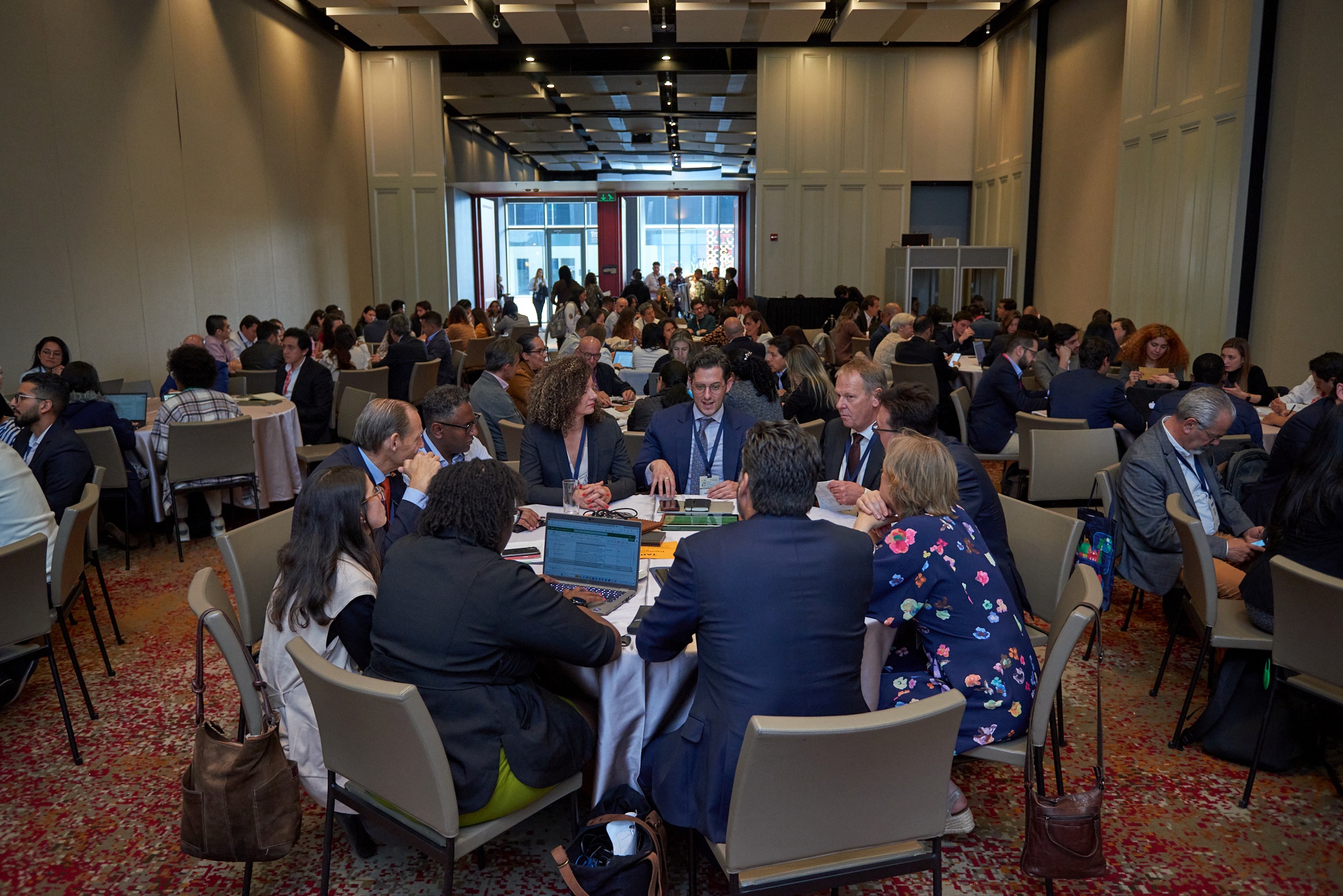How to Accelerate Climate Businesses and Share Learning

Subject
P4G Summit
Publication Date
2023-10-03
About
A defining feature of the 2023 P4G Colombia Summit was the focus on accelerating early-stage climate businesses in low- and middle-income countries. The Summit included acceleration roundtables, where 34 P4G partnerships and Colombian businesses shared their business model, results and challenges with government representatives and investors from across different industries who provided suggestions and lessons learned to strengthen their model. The tables were divided across the three main Summit tracks and included some of the following exchanges.
Biodiversity
Transforming Africa’s Bamboo, which is using native bamboo in Ethiopia to make sustainable building materials, shared its approach to capturing data and measuring different impact indicators, such as soil quality for biodiversity. The partnership described its challenges with delayed financial returns, in part due to the time it takes to grow bamboo. It is trying to address this by setting up community forests alongside coffee farming or with other compatible trees. The partnership also emphasized the need for support on getting investment ready and better understanding biodiversity credits. Experts at the table shared potential learnings from using Artificial Intelligence in Vietnam or pursuing different climate finance facilities.
Highlighting its work across Tanzania, Kenya and South Africa, Building Circular Food Systems shared how it is solving waste challenges by converting waste into organic proteins using organic larvae, or maggots. It has developed an effective waste aggregation system, constructed a new facility in Nairobi and has plans underway for a facility in South Africa. The partnership’s challenges include securing enough space to collect community waste alongside the waste from fast moving consumer goods companies. Since it’s developed a specific product relevant to African markets, it also needs investors who understand and actively support the business. Experts from Kenya and South Africa shared suggestions on collaborating with local and municipal governments to secure landfill space and offered to connect the partnership with additional corporate partners to develop long-term relationships that can continue to solve future waste problems.
Energy Transition
P4G’s Green Last Mile partnership highlighted its work on using electric three-wheelers for zero-carbon last mile delivery services in Bogota and its challenge with regulation not recognizing three-wheelers as delivery providers. Experts from Kenya, a country leading on electric-mobility, discussed how government can support effective regulation as Kenya is doing through its e-mobility commission that has incorporated policy recommendations from P4G pilot partnerships. At the same time, Kenyan partners learned how they might be able to replicate electric last mile delivery in Nairobi.
With Vietnam as the world’s third largest cement producer, Greening Cement aims to use waste as an alternative fuel to decarbonize cement production. However, it is struggling with securing enough waste supply to make the technology cost-effective. This requires collaboration with local government to ensure enough waste and overcome legal barriers to cooperate around collection and sorting. That’s why the partnership organized a workshop focused on brainstorming solutions for removing barriers, and worked with P4G to connect with new financial actors who can accelerate and expand the business model. With Colombian government and private sector partners at the table, they discussed strategies for mixing waste and better clarifying the feasibility results.
P4G partnership Sun Run, which is bringing the e-mobility transformation to rural Kenya with a focus on gender inclusivity and Zero Emission Bus Rapid-deployment Accelerator (ZEBRA), which supports cities to expand their electric bus fleets by helping them establish procurement pipelines and financing mechanisms for e-buses also presented during the session.
Sustainable Cities
In the sustainable cities track, businesses working on water supply, reducing food loss and circular economy shared their approach.
Closing the Loop on Textile Waste works on recycling clothing waste into new fabrics in Kenya and Bangladesh. For Kenya, it shared its challenges on making the approach more effective by locating it within special economic zones, where it would have easier access to the waste. With stakeholders from the Kenya Private Sector Alliance (KEPSA), the partnership identified potential collaboration opportunities for securing more access to waste. Meanwhile in Bangladesh, the partnership outlined the need and opportunity to benefit from exporting its textile waste.
The acceleration sessions also sparked partnership to partnership learning. Recycle 2 Value presented how it plans to process mixed plastic waste into recyclable building materials in Indonesia. Meanwhile, Circular Waste Centers, working on hazardous waste in Colombia, was curious to learn how Recycle 2 Value secures buyers and its experience with local demand. Currently, Recycle 2 Value sells its products to the Netherlands, as Indonesia still struggles to see recycled materials as appealing. Circular Waste Centers noted a similar challenge in convincing end users of the value of paying to convert waste to energy, as they exchanged ideas for how to increase local demand. Participants at the table also discussed the potential to scale as long as local partners operate the technology.
Circular Waste Centers also had its own acceleration table, where it shared its challenges in making the business model financially feasible due to the lack of incentives for proper waste segregation and lack of adherence or monitoring of the law. Currently, it is more attractive for investors to take waste to the landfill - landfill managers receive around $8 - $10 for 1 ton of waste disposed, and in Bogota there are 5,000 tons of waste generated a day. Indonesia also struggles with the same problem of it being cheaper to send waste to the landfill and the lack of guarantee about having a consistent amount of waste supply to convert to energy. Meanwhile, Vietnam struggles with the opposite problem – the Greening Cement partnership can’t secure enough waste. Participants at the table scheduled follow-up conversations to continue the discussion and learn from each other.
Other P4G partnerships in the session included Building Efficiency Accelerator and Smart Waste Collective.
Click here to learn more about all of P4G’s partnerships.
